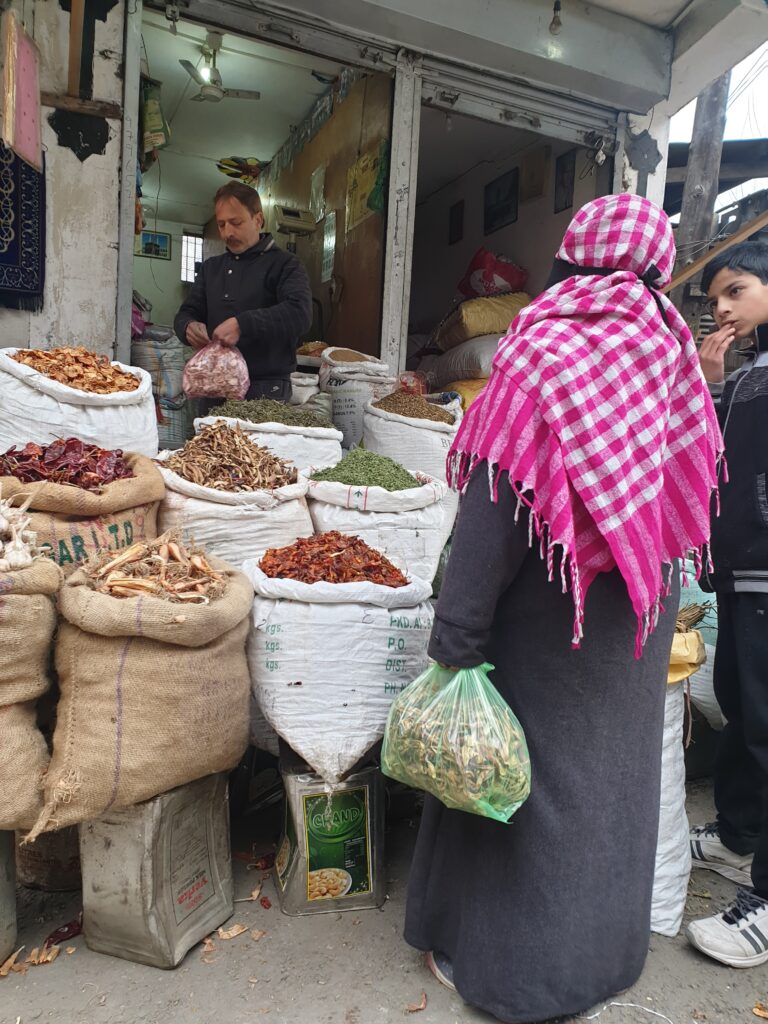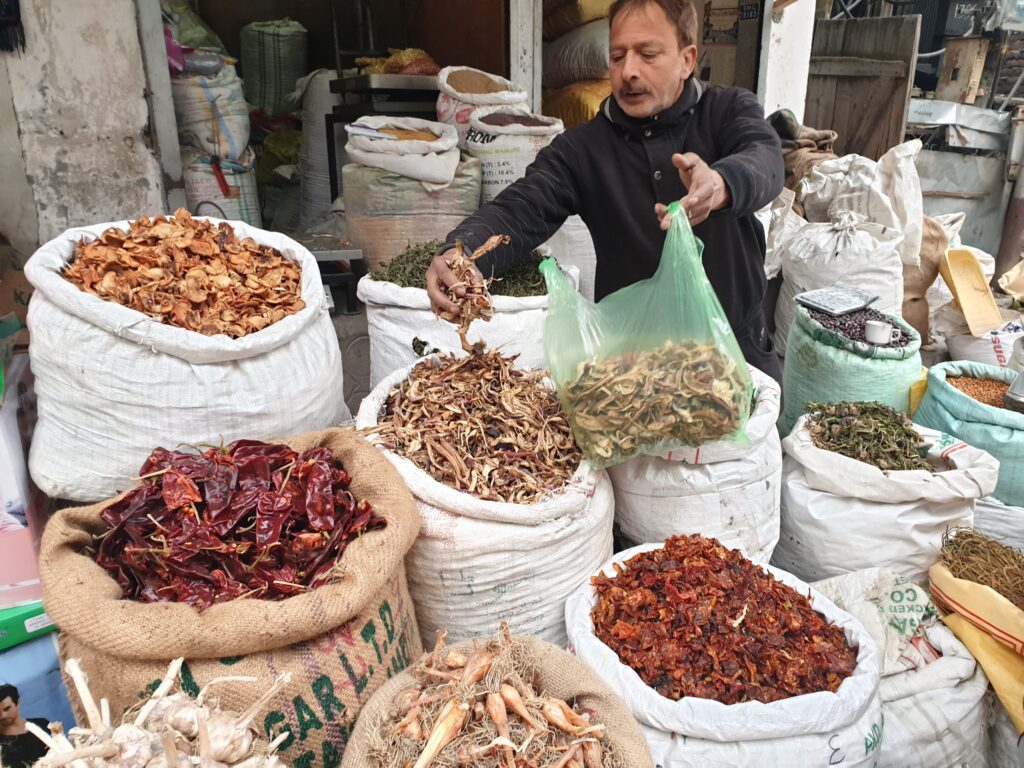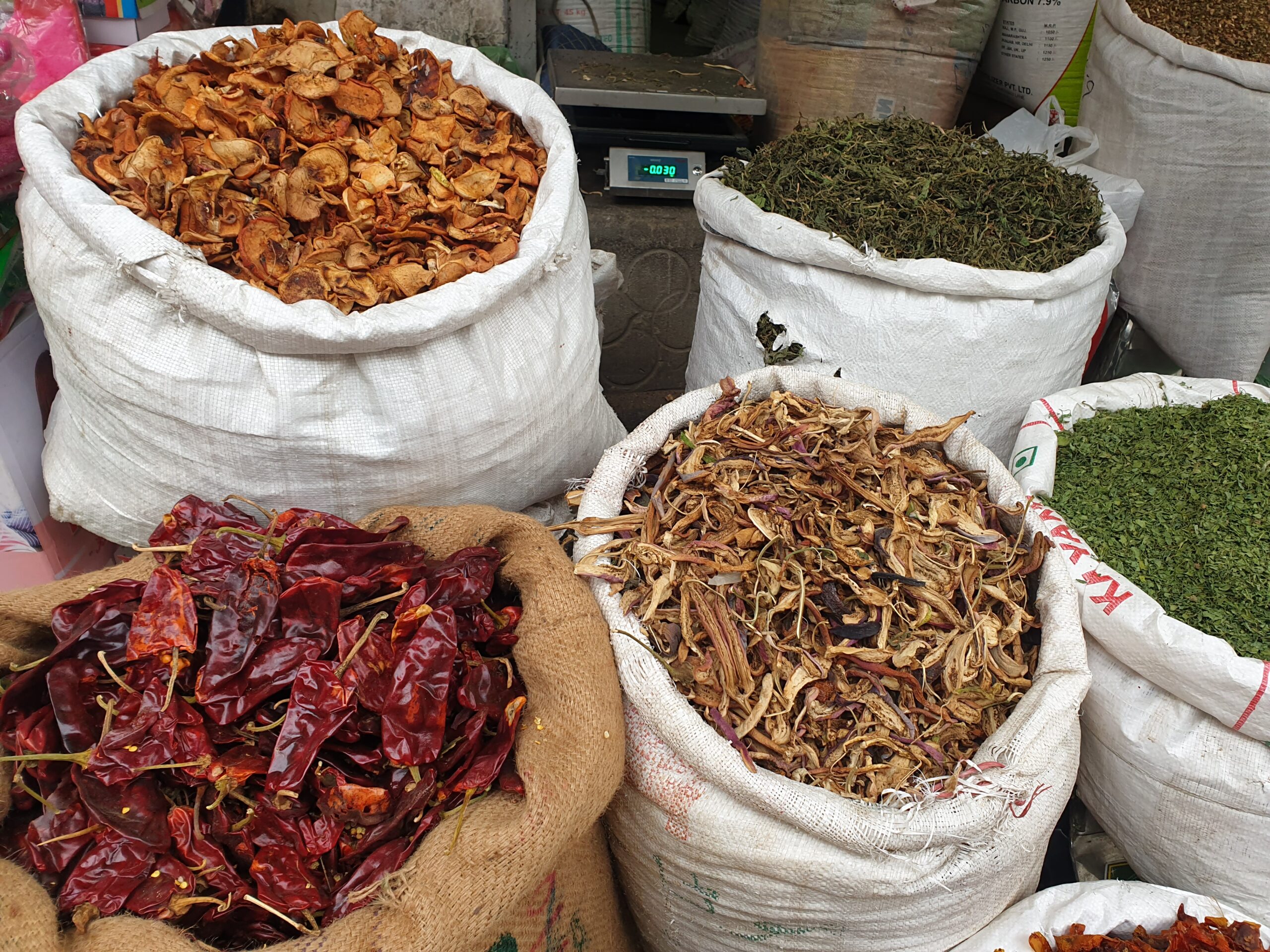The tale of Houk Seun in Kashmir transcends mere culinary practices; it encapsulates a cultural narrative passed down through generations.
By Manzoor Akash
Kashmir has enjoyed a longstanding reputation for its winter culinary tradition centered around the consumption of Houk Seun, or dried vegetables. Despite the current convenience of having fresh vegetables readily available, the people of Kashmir have clung to the practice of consuming sun-dried vegetables, a custom deeply rooted in rural areas where ample land allows for widespread vegetable cultivation.
These dried vegetables, beyond merely serving as sustenance, play a crucial role in shaping the identity and cultural heritage of the Kashmiri people. Villagers, in preparation for the harsh winter months, cultivate an abundance of vegetables during the summer, meticulously sun-drying them for later consumption. This practice, rooted in historical self-sufficiency, was particularly vital in times when heavy snowfall cut off the Srinagar-Jammu National Highway, the sole road link to the Kashmir valley, isolating the region for extended periods.
The enduring significance of Houk Seun struck a chord with me when I observed a young girl inquiring about a packet of Hochh Hand (dried dandelion leaves) at a renowned ‘Pick & Choose’ supermarket in Srinagar. Even her mother, regrettably, lacked substantial knowledge about these dried vegetables. It becomes imperative for our younger generation to acquaint themselves with the rich cultural practices of the past, fostering an understanding passed down from parents and responsible citizens.

In contemporary times, the preference for fresh vegetables has gained prominence, overshadowing the once-coveted dried vegetables (Houk Seun) that formed an integral part of Kashmir’s history. Despite their apparent fading from local markets, these dried vegetables persist in consumption, particularly among the elite class.
The array of dried vegetables is extensive, encompassing Ruwangun Hachi (dried tomatoes), Alle Hachi (dried bottle gourds), Wagun Hachi (dried brinjal), Gogji Hachi (dried turnip), Hochh Hand (dried dandelion leaves), Meath (dried fenugreek leaves), Nadur Hachi (dried lotus stem), Kraich (dried Iberian knapweed), Bumchoont Hachi (dried quince), Hokhegade (dried fish), Praan (dried shallot leaves), Phudnah (dried mint leaves), Tsochal (dried mellow leaves), and various Haak (Collard Greens) like Wouste Haak (atriplex-hortensis), Woppal Haak (dipsaeus ineris), Drub Haak (polygonum aviculare), and more.
These vegetables, meticulously sun-dried during the hot summer season, undergo thorough cleaning, peeling, and slicing before being laid out on wooden or plastic trays for drying. While the sight of garlands of dried vegetables adorning village walls has dwindled due to improved social conditions, these products persist in local markets.
Notably, dried vegetables hail mostly from villages and are distributed across markets, with districts like Budgam recognized for their superior quality. Markets in Srinagar, such as Sarai Bala, Maharaj Gunj, and Zaina Kadal, continue to be popular for offering these traditional delights. In Baramulla, dried vegetables find a place in Gade Bazer (fish market) or along the banks of the Jhelum River.
These dried vegetables, far from being limited to culinary use, find their way into religious festivals and celebrations. Maintaining cultural integrity becomes crucial, especially as the hospitality sector undergoes changes with new hotels and restaurants catering to Western themes. Introducing tourists to not only Kashmiri Wazwan but also these customary dried vegetables preserves a rich tradition.
The consumption of dried vegetables extends beyond Kashmir’s borders, with the European Union countries being major importers. China, the USA, Hungary, and Poland are among the primary suppliers. Locally, tonnes of dried vegetables are dispatched to Jammu, Delhi, Ladakh, and beyond. Kashmiri Pandits and locals in Jammu remain fervent consumers, staunch in their belief that no other delicacy can rival the distinct flavor of valley’s fabled dried vegetables.
Aside from their culinary appeal, dried vegetables are lauded for their health benefits, particularly during winter. They are considered effective in warding off coughs, chest congestion, colds, and fevers. Specific varieties, such as Hochh Hand, are believed to be rich in iron, offering benefits to anemic patients, especially new mothers. Each type of dried vegetable carries its own health perks, such as Kraich improving eyesight and Bumb aiding arthritis patients.
Personal memories are often intertwined with these dried vegetables, evoking nostalgic recollections. A diverse range of traditional dishes, from Gogji Hachi & Razma-daal to Alle Hachi & Maaz, reflects a culinary journey across generations. Noted poet and writer Zareef Ahmad Zareef emphasizes the centuries-old cultural significance of Houk Seun, underscoring its prevalence in his own childhood.

As the world evolves, embracing new dynamics, certain traditions persist. Ahad Group’s Fortune Resort in Shalimar, Srinagar stands as an exemplar, maintaining and introducing the valley’s rich culture to tourists, affirming that the legacy of dried vegetables endures.
The tale of Houk Seun in Kashmir transcends mere culinary practices; it encapsulates a cultural narrative passed down through generations. As we navigate the changing landscapes of modernity, preserving and celebrating such traditions becomes a shared responsibility, ensuring that the essence of Kashmir’s culinary heritage continues to thrive.
The views expressed in this article are solely those of the author and do not necessarily reflect the opinions or views of this Magazine. The author can be reached at [email protected]

Leave a Reply